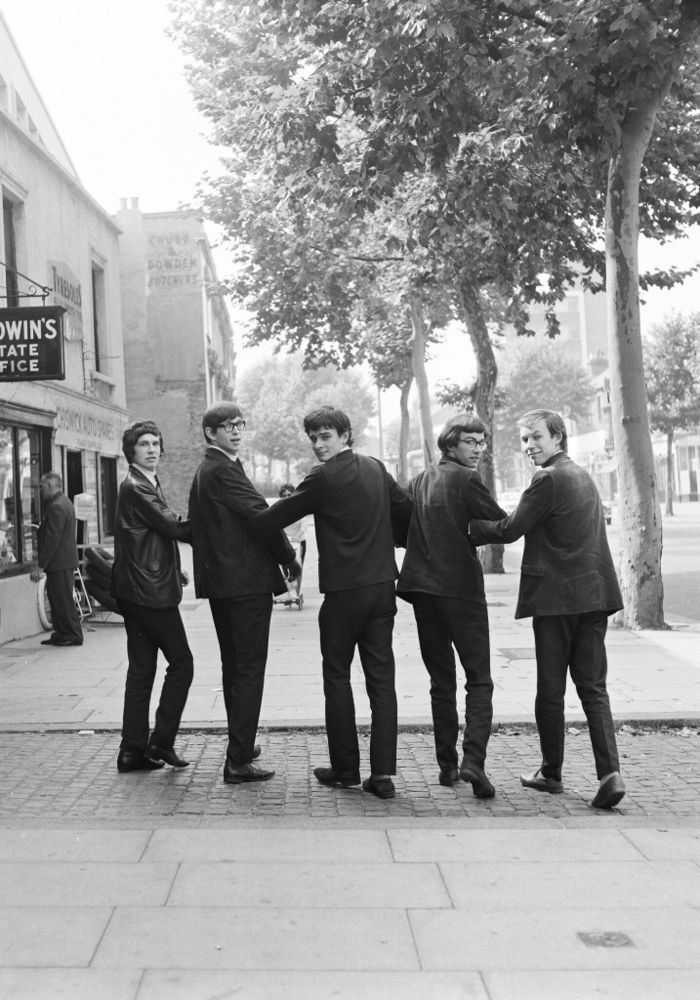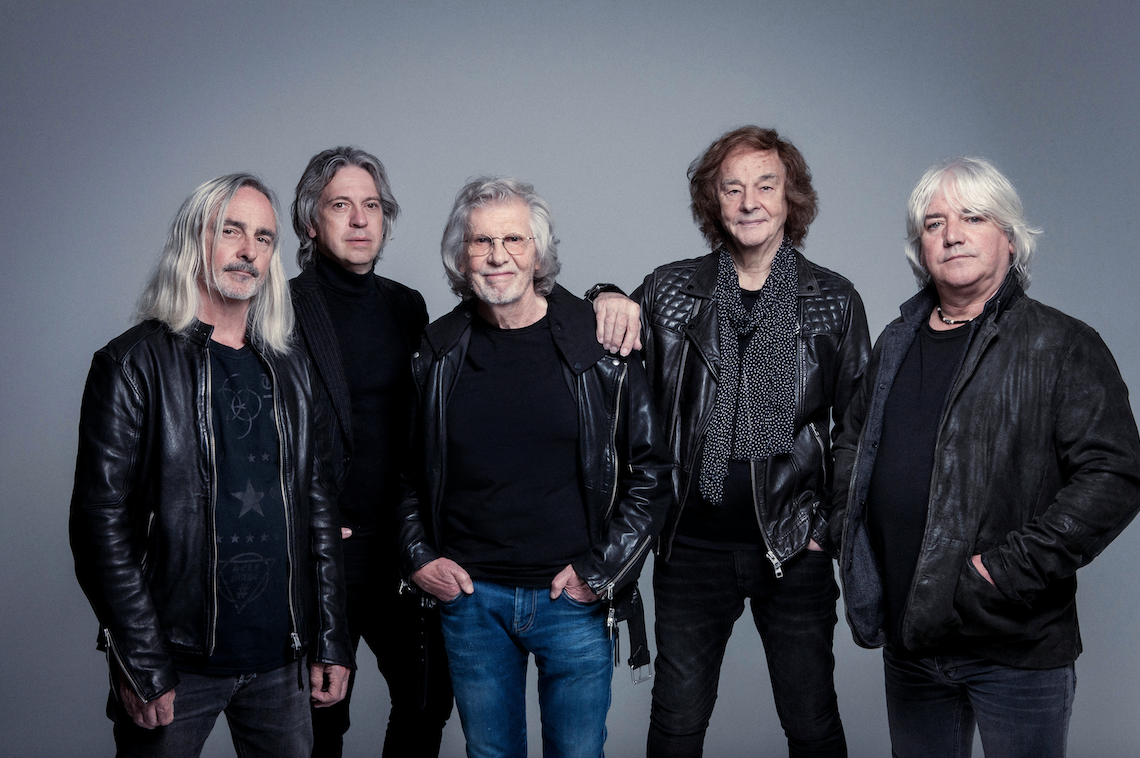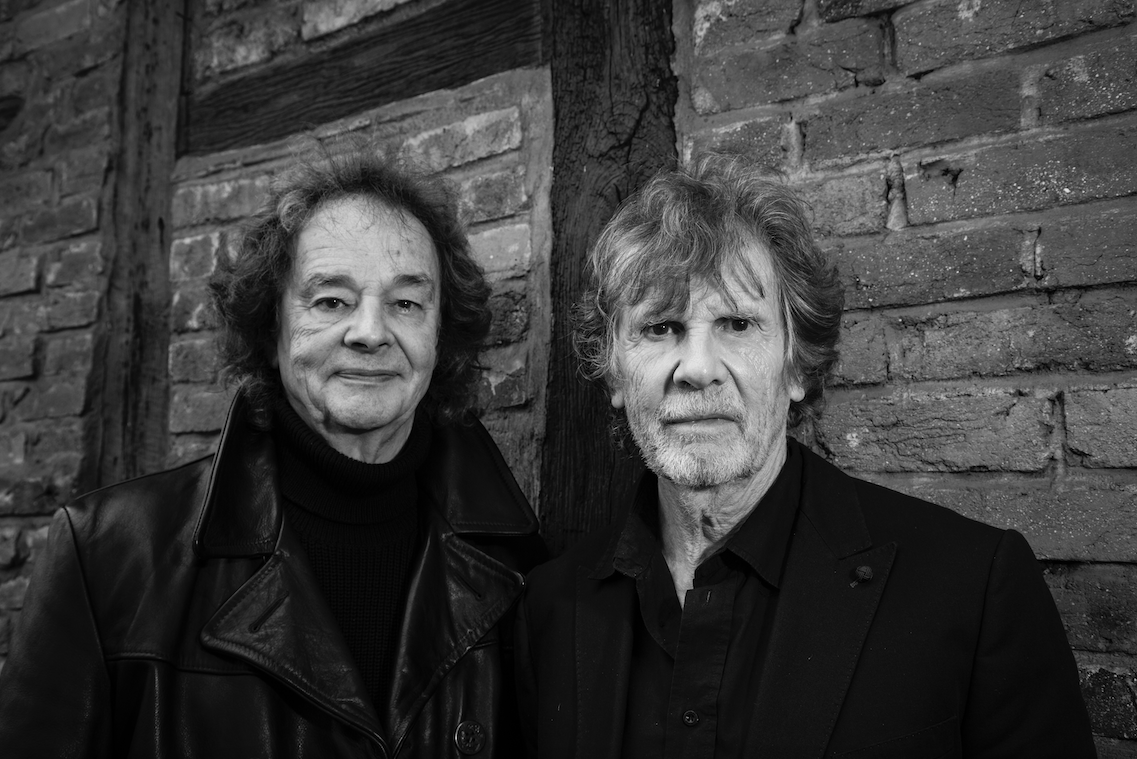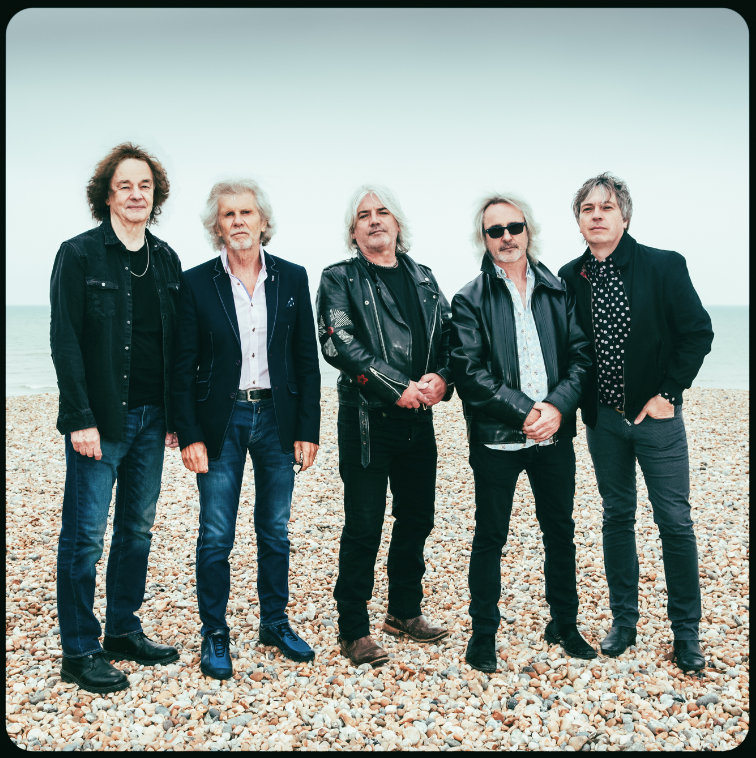Things could have been very different for the Zombies. As with most bands, there’s a degree of chance in how the right personalities came by one another at just the right place and time.
For Blunstone, Argent and the original Zombies line-up, this was very much the case – not just in how they came to form the band, but in the roles they would adopt within it.
“Rod went to a gig with his cousin Jim Rodford. Who was in the big band of the time, The Bluetones, who were fantastic,” Blunstone recalls, the velvety tones and gentle delivery that helped define such hits as Time Of The Season still instantly recognisable in his speaking voice.
“When Rod saw them, he said he knew he had to start a band. So, he started to talk to friends about putting a band together. There was a folk club at St. Albans school and he thought the best guitarist in the club was someone he didn’t know called Paul Atkinson. He asked him if he wanted to be in a band and Paul said sure.
“The school also had an army core, and the drummer with the best snare action was Hugh Grundy, so Rod approached him and he said yes, too. And Hugh had only ever been in the marching band, he’d never played a drum kit, so a lot of this was down to chance! Hugh had a friend who lived in the next street called Paul Arnold who was making a bass guitar in woodwork.
"He’d never played one, but he was making one and that got Paul into the band. As for me, at my school we sat in alphabetical order and I, Blunstone, sat next to Arnold! Paul said to me, ‘You have a guitar don’t you’? I said yes.”
With the very first iteration of the band now in place, the Zombies arranged their inaugural rehearsal, albeit with a drummer who’d only ever played the snare and a bassist whose primary engagement with his instrument had been conducted over a woodwork bench. Still, there was sufficient talent within the group to convince Blunstone they may be on to something special.
“Jim managed to get all The Bluetones equipment for us to practice on,” he continues.
“We did that practice with me as rhythm guitarist and Rod as lead singer. But we only played instrumentals, so we didn’t get to hear Rod sing. During a break, he went over to this broken-down piano and played Nut Rocker by Bee Bumble and the Stingers, which is a rock ‘n’ roll take on a classical piece. You have to be fairly accomplished to be able to play that, and Rod was only 15 but it was incredible.
"I went over to him and said, ‘You should play keyboard in the band’. Rod said, ‘No, it has to be a rock ‘n’ roll band with three guitars’. It was left like that, but as we were leaving, I was just playing to myself in the corner of the room a little bit of a Ricky Nelson song called It’s Late and Rod came over and said, ‘If you’ll be the lead singer, I’ll play keyboards’.
"And essentially, that was the Zombies. We just had to learn our instruments and learn to write songs!”
After that first rehearsal, the band set about refining their musicianship and songwriting chops with a vigour and intensity that would stand them in great stead for their initial shows.
Sequestered away in their practice space for months before their debut gig, they gave themselves the best possible chance of connecting with audiences when finally taking to the stage. Before long, they were spearheading a local live scene of rock’n’roll bands that quickly connected beyond the confines of the city.
“We rehearsed for months before our first gig with some very rudimentary equipment,” says Argent with a smile and a warmth that feels disarmingly familiar.
“We had a 30W amp that the whole band went through, including vocals. We did a couple of gigs like that and then Colin got us a gig playing at the local rugby club one night and we had a 20-minute slot in the interval. There were only about 20-30 people there, but they loved it and booked us again.
"Before we knew it we were headlining, and within a year they built a marquee on the side and we were playing to over 400 people, which we couldn’t believe.
“We built this great scene and we ended up playing in a competition which we won by beating The Bluetones, and that was rough justice because for many years when Jim was playing with us, he said to Colin, ’The first time I saw you play your first rehearsal I thought ‘no chance’’!







